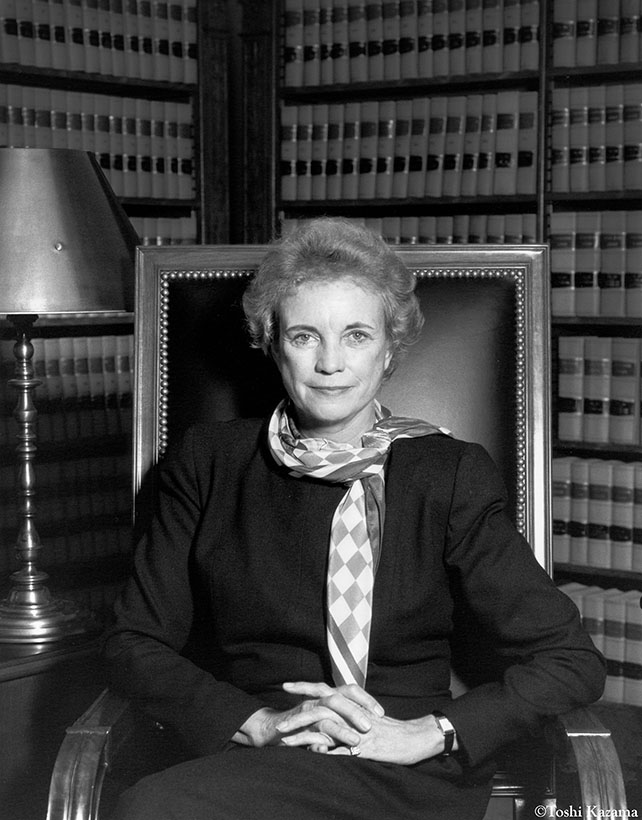The United States Supreme Court’s first female justice, Sandra Day O’Connor passed away on Friday, December 1st at the age of 93.
Born in El Paso, Texas in 1930, O’Connor grew up on a cattle ranch. In order to prioritize her education, her parents sent O’Connor to live with her grandmother while she completed high school. This had an extreme impact on her, as she completed high school at age 16 and then went straight to Stanford University. There she studied economics and law at an accelerated pace. Not only did she graduate third in her class, but she was also class president and one of only five women in Stanford Law School at the time.
Although she graduated at the top of her class from a highly competitive law school, she struggled to find work because of her gender. The only job she found as an attorney came with no office or salary. During this time she married fellow Stanford educated attorney John O’Connor and followed him to Germany in 1954. As he worked as an Army Attorney, she worked in civil contracts.
Upon their return they opened their own law firm in Arizona. While O’Connor was working and raising their three children, she took an active role in local politics. She was elected to the Arizona state senate in 1970 and chosen as the Republican majority leader by 1972, the first woman in the country to hold that position. By 1974, O’Connor left the state senate in favor of the judicial branch. She served on the Arizona Court of Appeals until 1981, when President Ronald Reagan appointed her, the first ever female justice, to the Supreme Court of the United States.
She easily passed through the senate with a vote of 99-0. As a moderate conservative, O’Connor often voted with the majority on cases such as Bush v. Gore and Grutter v. Bollinger. However, she also was a swing vote on monumental decisions like the review of Roe v. Wade.
Throughout her 24 years on the Supreme Court, Sandra Day O’Connor was commonly referred to as an independent thinker and the most powerful woman in the world. She is survived by the Sandra Day O’Connor Institute which operates to promote American democracy through civil engagement and discourse.





